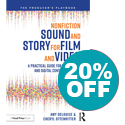 Doctors explaining Gabrielle Giffords’ seemingly amazing transition on the path to recovery after her gunshot wound have credited “neuroplasticity,” or the ability of the brain to compensate for damage by at least partly rewiring itself and assigning new tasks to undamaged regions. It made me think about many organizations I know–including my own business–that were forced to “rewire” when the economic downturn hit. Now we’re on the road to recovery, how much of this flexibility can and should we retain?
Doctors explaining Gabrielle Giffords’ seemingly amazing transition on the path to recovery after her gunshot wound have credited “neuroplasticity,” or the ability of the brain to compensate for damage by at least partly rewiring itself and assigning new tasks to undamaged regions. It made me think about many organizations I know–including my own business–that were forced to “rewire” when the economic downturn hit. Now we’re on the road to recovery, how much of this flexibility can and should we retain?
People: During the downturn, many of my clients became super-multi-taskers (they were already multi-tasking plenty). When their staff and colleagues were “downsized,” they suddenly found themselves doing additional jobs–sometimes ones they had given up years before. They had to re-learn old skills and acquire new ones. They had to plug into the hierarchy in new ways. I did the same when I became a solo practitioner, after years of running a multi-person studio. Skills I’d like to keep: teaming with clients and vendors, avoiding bureaucracy, and using technology to work efficiently. Skills I’d like to lose: making my own coffee (so far, successfully outsourced to my husband and 12-year-old!)
Leadership: The downturn seemed to bring more collaborative leadership styles, perhaps due to a de-layering of the intervening bureaucracy. Many nonprofits became more tuned in to the skills of their boards, and tried to tap them more effectively. Leaders had to become more strategic about financial management and fundraising, and make up for lost staff talents. Skill to keep: Board and Leadership engagement with the mission and strategy. Skill to lose: Board involvement in day-to-day decisions.
Money: Several organizations I work with lost revenue sources, but through quick adaptation and administrative and board engagement were able to develop new ones. In my business model I did the same–adding more workshops and brand consulting to a mix that had included mainly video and multi-media production. Skills to keep: Making the money last longer. Skills to lose: Under-charging, and penny-pinching that means the end product suffers and the brand takes a hit.
Time: As a corollary to shrinking staffs and less money, we all came to stretch how much time we spent at work. We are, after all, the “most productive” country in the world. Or so we think. Skill to keep: Efficiency. Skill to lose: So much multi-tasking that we aren’t thoughtful and creative.
What skill did you gain during the downturn and do you want to keep it or lose it?






